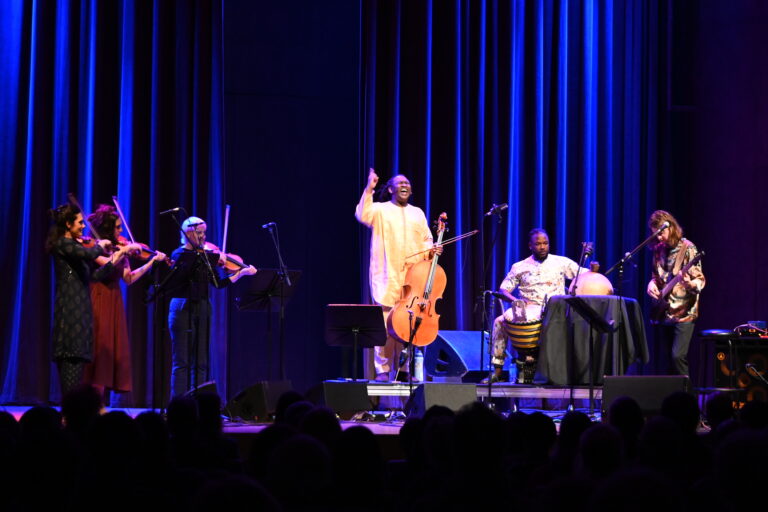The sirocco is a warm and vast current of air exchanged between North Africa and Southern Europe. It’s also the symbol that South African cellist Abel Selaocoe uses to inspire a spirit of musical exchange between Africa and Europe in a concert programme that he and his friends from the Manchester Collective are taking on a major North American tour, including a stop in Montreal last Thursday.
The artist is as solid in Beethoven and Debussy as he is in arrangements of traditional pan-African pieces or even his own compositions. The Sirocco concert, given in front of a Bourgie hall electrified by his charismatic stage presence, left a little room for the European classics (very brief Haydn, Berio, Hans Abrahamsen and Scandinavian folklore), but gave most of it to the sounds and technical particularities of Africa (Mali, South Africa). More than commercial crossover, although it sometimes sounded a bit like it, Selaocoe offered an intercultural vision of chamber music, where a Haydn quartet had the resonance of an anti-Apartheid spiritual song from South Africa, and percussive techniques thrown at the strings or the cello body were matched by surprising, even impressive vocal inflections. These led the versatile musician to navigate deftly from delicate high notes to rumbling lows reminiscent of Tibetan throat singing. It seems that, between Africa and East Asia, age-old traditions have managed to forge a permanent cultural path.
Selaocoe and the musicians of the Manchester Collective (two violins, a viola, a percussionist and an electric bass) injected an infectious energy that earned them a long and warm ovation. The purists of another era would have hated this kind of programme, but Selaocoe is the bearer of a new future for classical music, and his message of intercultural renewal is clearly reaching a large and, above all, quite young audience.
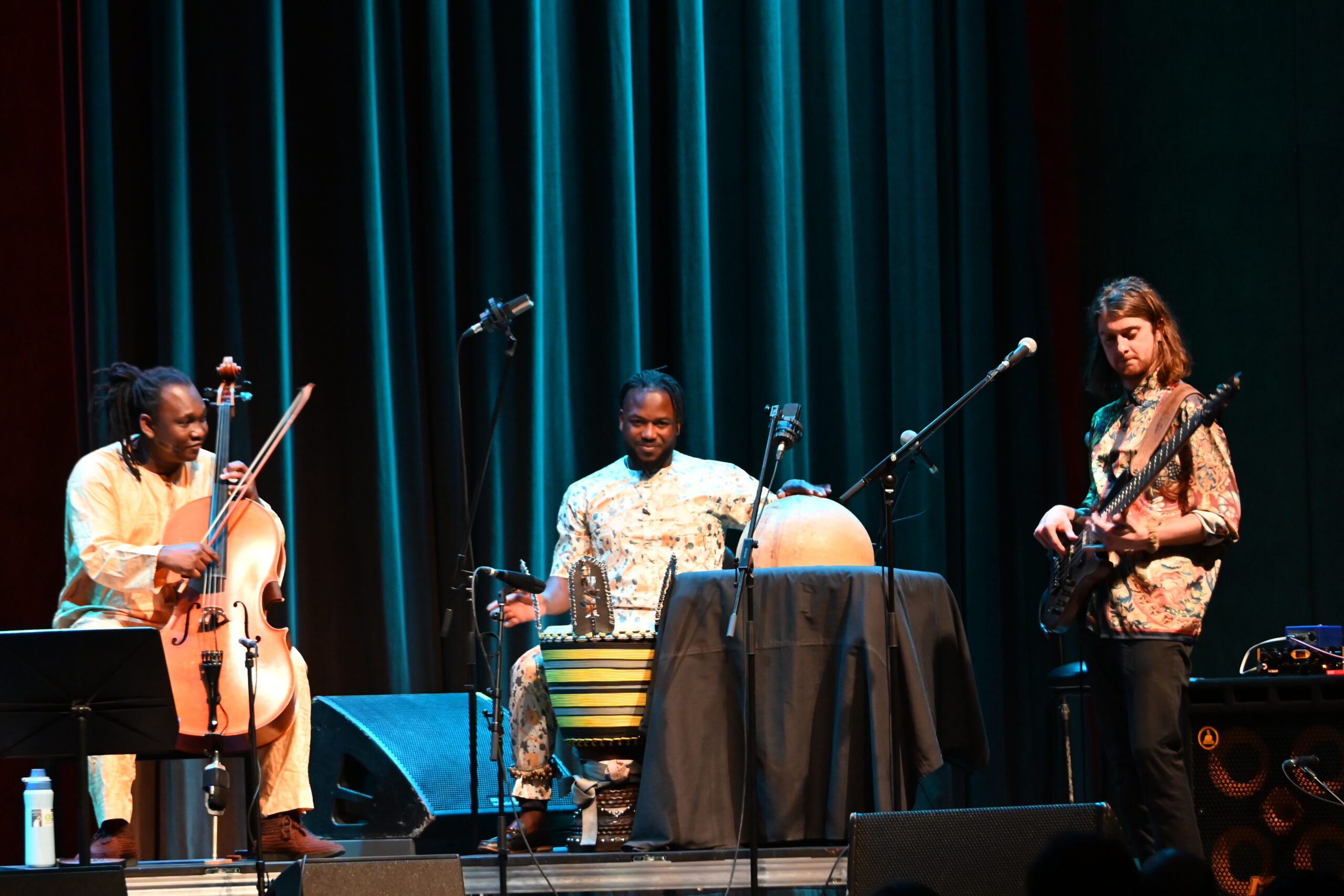
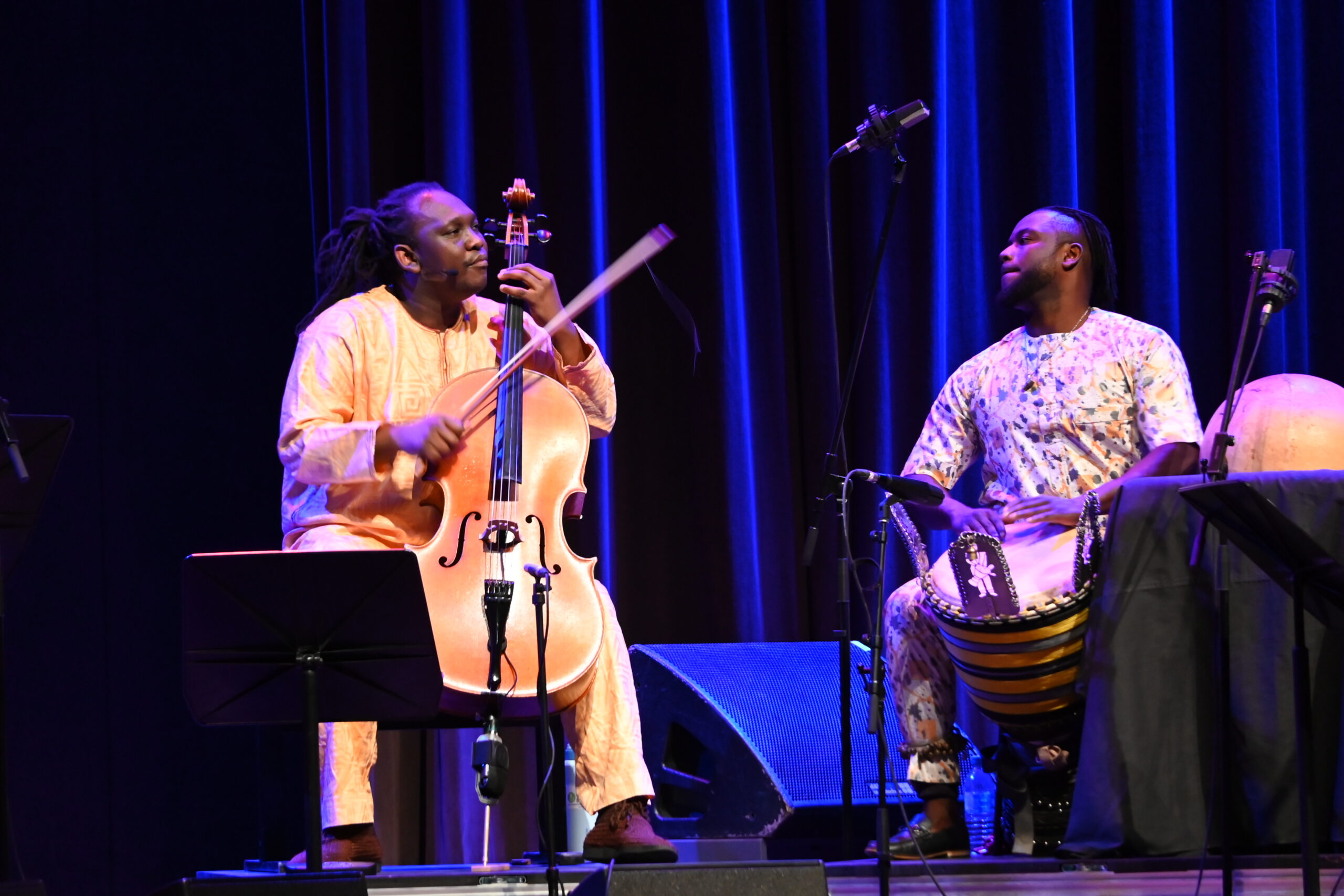
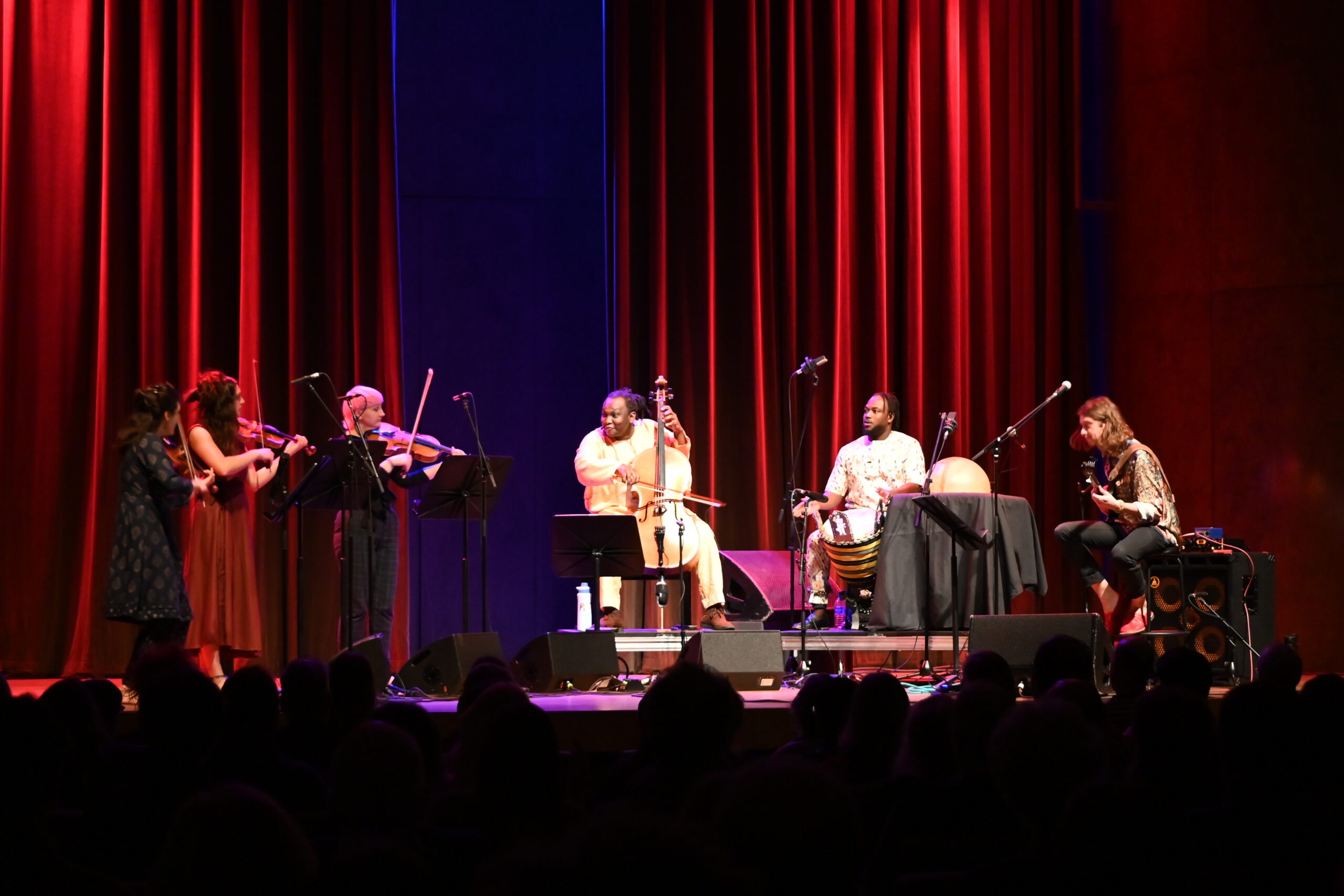
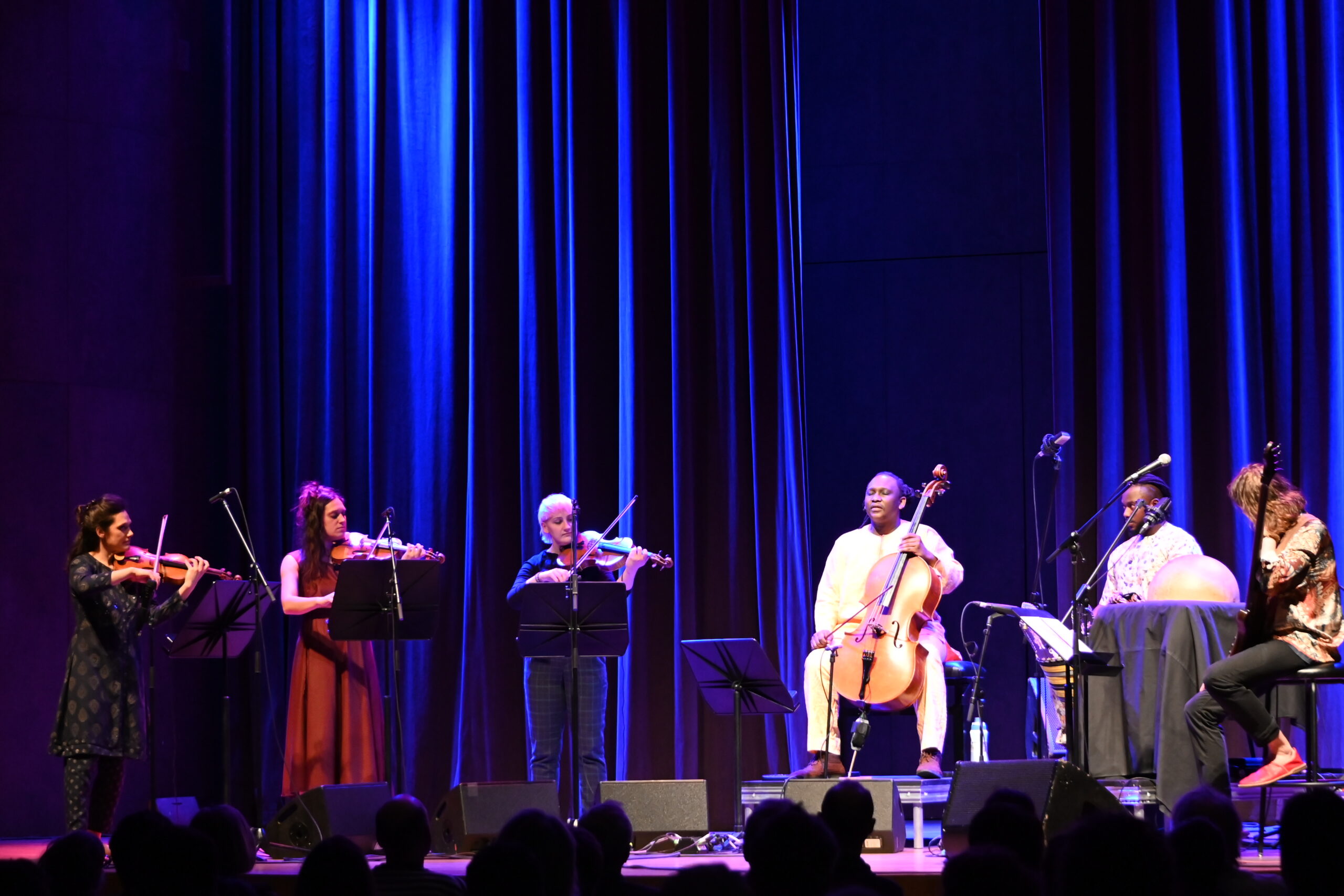
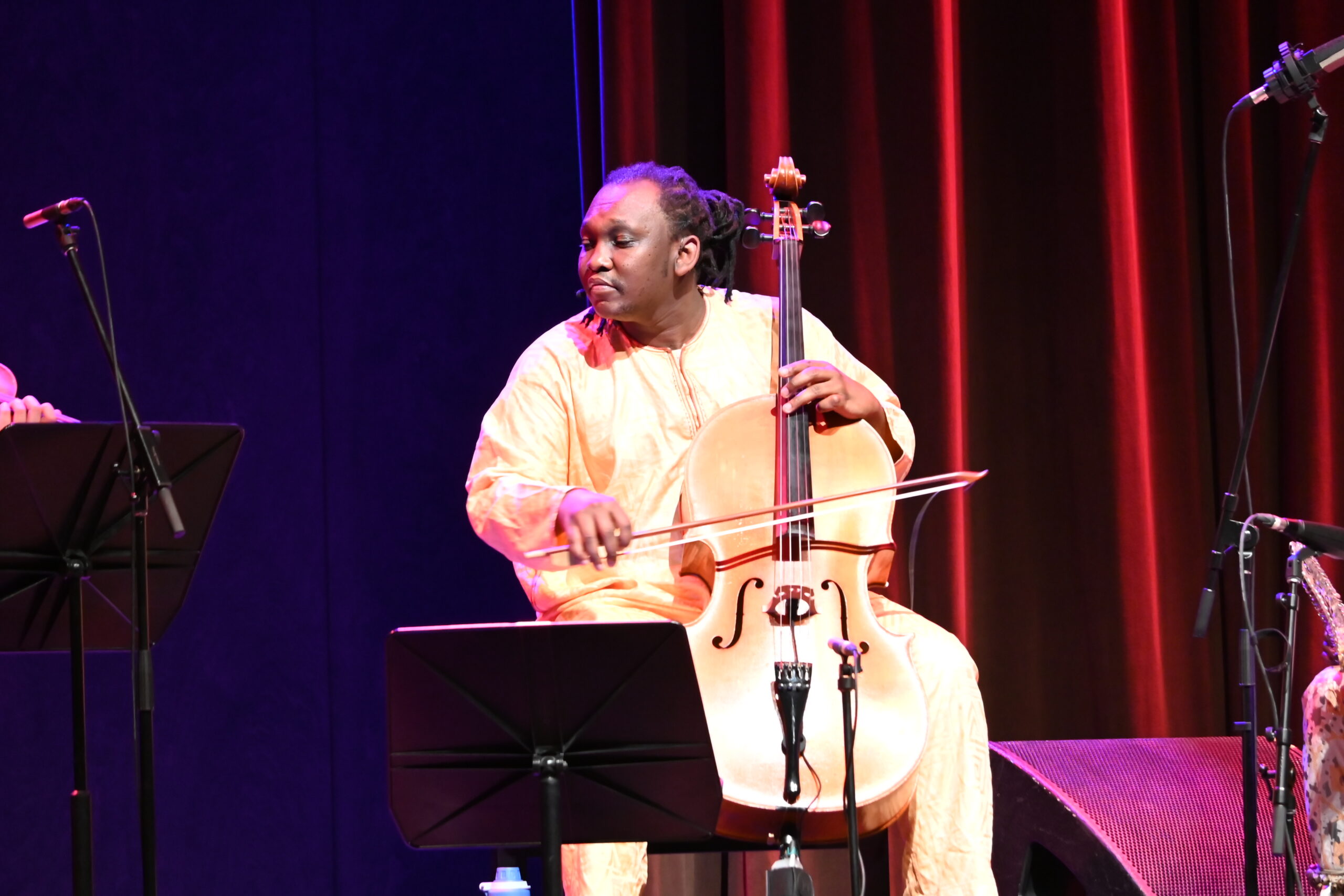
Photo credits : Anna Kaiava
